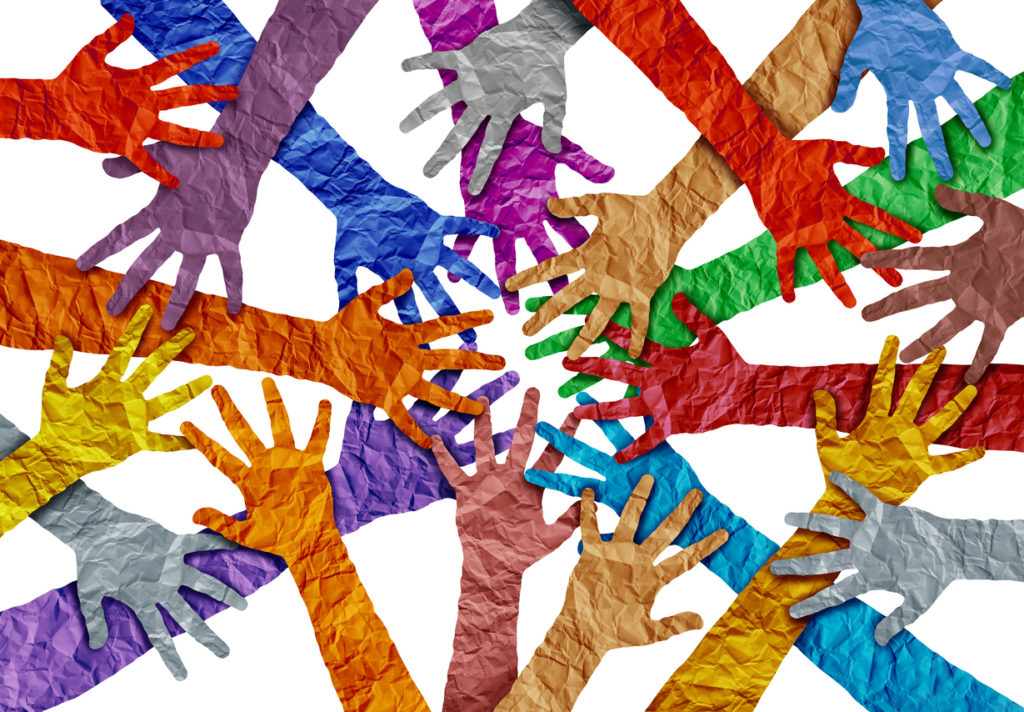Editor’s Note: This is the first in a series of posts that will run this week, written by Chhavi Chauhan, Shaina Lange, and Tony Chen. Chhavi is Director of Scientific Outreach at the American Society for Investigative Pathology (ASIP) and Director of the Continuing Medical Education (CME) Program at the Journal of Molecular Diagnostics. Shaina is Manager of the Publishing Integrity Office at ACS Publications. She oversees the strategy, policies, and activities to support publishing integrity across the ACS journals portfolio. Tony is a Journal Publishing Manager at Wiley, where he manages a portfolio of journals in Oncology, Pathology, and Basic Medical Science under the Health Sciences banner.
Have you ever been good at something and when someone discovers that “thing”, you find that you’re always tapped to help? Maybe you volunteered one time to help plan an office holiday party, and now you’re the go-to planner? Maybe you helped organize a beloved outdoors adventure and are now asked to lead such efforts again? Maybe your cooking was so superb that you’re expected to host every party?
We all have strengths and passions that enable us to excel at certain tasks – tasks that often turn out to be fun, gratifying, and stimulating. These striking achievements may appear effortless but, no matter how much fun you have planning and executing a fabulous office party, leading a team of peers on an outdoors adventure, or cooking an elaborate meal for an event, it still entails a lot of planning, background research, long prep hours, and a strong commitment to see the task through.

Though tasks that we are passionate about and that align with our personal strengths make us undisputed contenders to support or even lead these efforts, oftentimes they may come at a personal cost. Through this series of posts, we aim to shed light on a similar phenomenon that affects all industries, including scholarly communications: diversity tax. We will highlight the impact of this “tax” and make recommendations for how individuals as well as organizations can minimize the burden on individual contributors while furthering their personal career paths.
In this first post, we will explain what diversity tax is, why we need to be aware of it, and how it negatively impacts those in underrepresented communities. The remaining posts in this four-part series will focus on individual contributors, and offer recommendations to those individual contributors, as well as their organizations and allies, on how to balance diversity-related activities with traditional career goals and ensure that they are recognized as an important aspect of career development — minimizing the negative impact while maximizing the engagement (and benefits) for all stakeholders.
“Diversity tax” refers to an unintentional burden placed on marginalized individuals to help address diversity, equity, inclusion, and accessibility (DEIA) issues and participate in these efforts. This phenomenon of “cultural taxation” was originally coined in 1994 by Amado M. Padilla, a psychology researcher at Stanford University, with reference to the burden placed on minority academics to pursue “ethnic-related” research. Terms such as “minority tax,” “Black tax,” or “brown tax” are also common to describe the specific burden placed on Black, Indigenous, and People of Color (BIPOC), though we note that this phenomenon extends to other communities as well.
It has been heartening in recent years to see many organizations renew their commitment toward addressing issues of DEIA and creating more inclusive spaces. These policies often result in incredibly positive changes for both the individual stakeholders as well as the organization as a whole. However, oftentimes, these efforts are viewed as volunteer-driven passion projects done in addition to one’s day-to-day role. Many of the “volunteers” (or those asked to volunteer) are, therefore, the very people most affected by systemic issues in the first place, creating an unspoken obligation and pressure to contribute to or lead DEIA efforts, often without any formal recognition or compensation. These efforts may aim to be inclusive and representative, but, without a corresponding commitment to supporting and furthering these contributors’ careers, they can result in tokenization* — increasing, rather than decreasing, systemic inequities.
It can be difficult for individuals from these groups to talk about diversity tax. Many of us don’t want to risk DEIA efforts moving forward without direct input from those affected most. We don’t want to risk losing a seat at the table, or being seen as complaining or less than passionate about these issues.
As we seek to raise awareness about diversity tax for those affected as well as allies, we want to share with The Scholarly Kitchen readers an anonymous contribution from someone with personal experience of the toll it can take, based on their time at a large scholarly publishing organization.
“There have been several times in my career when I was one of very few BIPOC managers in my department. As a result, championing diversity, equity, and inclusion activities felt like it became an unspoken, uncredited part of my job. While I am passionate about these issues, it can become a burden to feel like you are the only one advocating for more inclusive policies. You become the token person in your department, expected to help with any project about diversity without being compensated or necessarily recognized for this extra work.
This issue especially came to a head for me when my organization put together a diversity task force to examine and improve multiple aspects of our organization. The diversity task force was initially made up of only very senior-level people which meant the members were mostly male and all White. When eventually the task force realized it needed to expand membership to be more inclusive, I was asked to join; me along with a couple of other lower-level BIPOC managers. While they had a positive intent trying to include outside voices in the group, I had very complicated feelings about it. It was never clear what my role was or why I was chosen, other than the fact that I am a person of color. But it was also a chance to potentially impact our organization’s strategy on DEI and gain some visibility with some of the most senior people in our organization. Sure, it was going to add more work to my already busy schedule, but I felt like, if I didn’t do this, then who could do it?
However, after the first meeting, it became apparent there was an obvious power imbalance among the group members. The senior level members dominated the meeting, and I didn’t feel empowered to speak up or contribute. At one point, I wanted to push back on something one of the executive level members said, but I got nervous about challenging a White executive I’d never met before. I ended up saying nothing. Which ultimately helps no one!
Looking back, I am sure the task force members would have been open to my contributions. But at the time, I felt like I was once again the token BIPOC manager asked to make diversity work a priority without being given the tools to actually make a difference.
Unfortunately, my experience with this kind of “diversity tax” isn’t unusual. But with some care and intention, it is possible to engage in meaningful work with diversity without overburdening certain employees.
We thank this anonymous contributor for bravely sharing their experience. For many of us who identify with one or more underrepresented groups, their testimony is all too real. Like them, we have experienced feelings of isolation in meetings, fear of speaking our truth while balancing the pressure to give voice to all underrepresented groups, the shame in asking for formal recognition for our efforts, and the guilt in saying “no”.
In the comments below, we invite thoughts, insights, and experiences from others that we could highlight or share on their behalf with the scholarly publishing community. Note that you can comment anonymously, if you choose.
* Tokenization is the act of creating tokenism, the practice of making only a perfunctory or symbolic effort to do a particular thing, especially by recruiting a small number of people from underrepresented groups in order to give the appearance of sexual or racial equality within a workforce.
Discussion
18 Thoughts on "Guest Post – Reducing the Burden of Diversity Tax: The Tax No One Talks About"
‘Oftentimes, these efforts are viewed as volunteer-driven passion projects done in addition to one’s day-to-day role’.
Yes, I experience this ‘do-it-on-your-own-time’ aspect as a huge barrier. In the past I’ve even felt guilty for spending time and energy at work participating in inclusion initiatives.
Our voices should absolutely be heard, and we should have a seat at the table, otherwise initiatives risk losing their way. But volunteer-driven efforts in tandem with the requirement to keep up with other professional responsibilities (which already involve navigating the ever-shifting negatives of asymmetric systems) can feel just too overwhelming to participate in. Personally, I would need to be able to count on some structured support, and ideally some kind of tangible benefit outcome, in order to justify risking a workplace wellbeing that is all too often in a delicate balance.
Besides, when you’re compensated for your efforts, you are shown that you’re worth being listened to.
Hello, Anonymous commenter. We totally agree with your experience and our future posts will attempt to give suggestions for how to deal with this burden as an affected individual and suggestions for organizations to help relieve this burden from their marginalized employees and we hope you will enjoy them!
Thank you for highlighting these issues. This something that I have experienced for many years.
It’s important to consider Diversity Tax at an organisational level, but equally as it relates to the specific beliefs and approaches of individual managers. At one organisation I worked at, I was heavily involved in both internal and external DEI initiatives. Not only were these initiatives not featured in my goals, but my manager explicitly told me that my involvement was actively detrimental to my career progression. This was despite me working with some of the most senior people in my organisation, leading an ERG, organising and leading multiple events and initiatives internally and participating in industry projects. Included in my goals was also to raise my profile within the organisation which I was told my DEI work did not count towards.
Diversity Tax doesn’t just relate to specific projects and initiatives. I have regularly been approached and expected to answer questions on all DEI related topics. While each question may only take a short amount of time, it adds up to a significant amount of time and emotional effort to answer these questions. You are often put on the spot to answer these questions and it can be difficult or impossible to say no, in particular when the question comes from a more senior colleague. I have often felt under pressure to share very personal stories to work colleagues in order to demonstrate the point. This kind of emotional labour makes a person vulnerable and can be exhausting. It’s also important to stress that my individual experience doesn’t make me an expert on all DEI related topics.
You are very welcome, and thank you for your thoughtful response as well as for sharing your own personal experience.
I completely agree that Diversity Tax should be considered at an organizational level, and hence, in the concluding post of this series, we make recommendations for organizations to better support the DEAI efforts with structure, intention, recognition, and some metrics to follow progress and impact. You are also absolutely right about each smaller effort adding up to a significant amount of time as well as emotional effort! We echo the compulsion to not say no; in the upcoming post tomorrow, we make some recommendations for individuals to minimize the burden of diversity tax and we sincerely hope that you will find tomorrow’s post insightful and helpful.
It is so heartbreaking to hear your experience when instead of being recognized and rewarded for your DEIA efforts, you were penalized for these needed efforts.
Thank you for sharing your personal stories with work colleagues to demonstrate the point. I empathize and agree that the DEIA efforts can be exhausting and emotionally draining. With gratitude 🙏
Hello, thank you for sharing your experience. We agree and our future posts will offer suggestions for affected individuals to relieve some of their burden and for organizations hoping to relieve some of this burden for their employees.
I have experienced this as well. To be honest, a lot of it has been self-imposed. I’ve worked at an org where, for a long time, I was the only voice for moves toward any kind of DEIA awareness or work and felt I had to be more vocal and create learning opportunities for people to make things better.
Honestly, I don’t mind and haven’t minded doing this labor when it has led to actual change. My philosophy was that I was willing to pay the tax now, hoping that this front-end work will lead to me not being the ONLY person doing it in the long run.
What IS exhausting and demoralizing is doing this work and having only surface-level efforts when the organization is making claims of being an inclusive and equitable organization. One-off initiatives that look good in marketing campaigns while ignoring or outright avoiding calls for meaningful, structural change.
Most recently projects presented to the org with claims of making DEIA a priority where they use my name as a person consulted when in fact they ignored my concerns and recommendations. Being used in this way, as some kind of token seal of approval because I am a visible person who has paid this tax is something I am struggling with a lot right now.
Thank you for your comments and for sharing your personal experience. I appreciate you leading the DEIA efforts and relate to your philosophy of (hoping to have) having more contributors and allies in the long run.
You raise a very valid concern of the Diversity Tax be self-imposed sometimes, something we can delve into deeper.
You are absolutely right about these efforts being sustainable and intentional with lasting meaningful, structural changes. Hopefully, you will like the concluding post of this series in which we make recommendations for organizations to better support the DEIA efforts with structure, intention, recognition, and some metrics to follow progress and impact.
It is shocking to hear your story where your efforts were recognized and highlighted yet the org failed to consider your concerns and recommendations. If you may be open to sharing your experience further, anonymously, it may help us synthesize a follow-up post to bring more light to this situation.
Hoping we all get seen and that our recommendations are put into practice with a purpose to have a lasting positive impact.
Thank you very much for this excellent and much-needed post. Expressed several important thoughts that resonate with me. A couple of associated thoughts are that, as DEIA has become a more important part of our workplace culture, the responsibilties for volunteer diversity network leaders have increased. It would be great to see more formal training for these individuals (which would also help with career progression), and also more consideration given to succession planning – after all, success here is that we have inclusive organizations in 50 years, when we’re all retired. I often see networks crumble when one or two key individuals leave / get burned out / decide to step back etc. I think it’s unsurprising that issues relating to burnout are emerging 5+ years after I first saw DEIA efforts really starting to gain momentum in our industry – there’s a reason most terms of office are 4 or 5 years.
One suggestion would be a cross-industry system for DEIA accreditation, that scholarly comms organizations could sign up to – perhaps overseen by C4DISC or similar. There could be different levels – e.g. bronze, silver, gold – and part of that could include an infrastructure for diversity staff networks that includes training, succession planning and recognition proceses. This is such a big part of our industry now I feel we need to tackle this as a community, rather than simply via individual organizations – DEIA, after all, is not a competitive sport.
Looking forward to the other posts in the series.
You are welcome, Simon!
I agree with you that there is an imminent need for supporting infrastructure as well as succession planning for more sustainable DEIA efforts. Hopefully, our subsequent posts, especially the concluding post will resonate with you as we share recommendations for organizations to minimize the burden of Diversity tax in that post.
I like the idea of a cross-industry system for DEIA accreditation; however, stratifying these efforts into tiers may defeat the purpose as some resourceful organizations may be able to check boxes sooner to get to a gold level for initiatives that may be guided by “other” rewards (the tier structure per se). Well said, “DEIA is not a competitive sport.”
Looking forward to your thoughts on the subsequent posts in the series.
Thank you for your post and I look forward to reading the series.
I actually said no to the diversity tax. It was hard and perhaps I am now in a better position to do that than some others. When I was asked to take the responsibility of sharing diversity initiatives with my teammates I took a deep breath and said no thank you. I was honest with my boss in letting them know I felt I had other things I could contribute and did not want to be the “person” responsible for convincing others that DEIA was important.
They respected my honesty and said nothing more. The said part is, they did not go on to assign this role to someone else.
There is more work to do.
Thank you for your response and for sharing your personal experience!
Kudos to you for saying no, it is one of the strategies we propose in today’s post to minimize the burden on affected individuals.
I am saddened to hear that the role was not assigned to another individual(s); it highlights how teams and organizations often fall short of taking forward the DEIA issues if the marginalized individuals themselves do not take on the charge in addition to their assigned roles and responsibilities, and hence the circle of taking on too much and feeling guilty about mindfully setting the needed boundaries.
The “unintentional burden” (perhaps more accurately “unrecognised burden”) of diversity tax is not just an issue for the work of individuals within organisations, but also across the broader ecosystem. For example, when the R2R Conference invites people to contribute to workshops, panels or other sessions specifically in support of diversity, we are very aware that the people best qualified to lead these discussions may be those most likely to be burdened by diversity tax. In addition, as we work to increase participation in all aspects of the programme by people in previously under-represented demographics, we risk imposing a more general diversity tax on those we invite. For some, this is less of an issue, if their role within their organisation specifically includes these kinds of communication or outreach responsibilities, and this is recognised in their remuneration and career development. But for others, we may be asking them to take on an unrecognised and unrewarded burden. I look forward to the following articles; hoping for helpful recommendations not just for employing organisations, but also for others who may be making well-intentioned but potentially burdensome demands.
Thank you for your thoughtful response, Mark!
You raise very valid points and concerns, especially from the perspective of an ally. Yes, in our post tomorrow, we make recommendations for allies like yourself to take forward the DEIA efforts with intention and mindfulness!
Lastly, more and more organizations are now realizing the need for dedicated staff to manage DEIA initiatives. However, in the majority of the settings, like you mention, marginalized individuals have been taking on an unrecognized and unrewarded burden.
Thank you all for posting about this. It is an issue that not many people realize is an issue!
In my case, my organization has a ERG group for an underrepresented community that I was originally excited to be a part of, since I identified as one of the members. However, the group has not been active in a very long time, and the former chairs are either no longer with the company or simply aren’t as involved in the group anymore. This was a little disappointing, as I believe having access to a group like this is important. I feel strongly enough where I would like to “relaunch” the ERG, but I simply don’t have the time outside of my usual workload to commit to leading the cause.
Even if I could, I’d then be one of many who ultimately pay the Diversity Tax, simply to feel (and allow others in similar situations to feel) a greater sense of belonging within the organization as a whole. And if I were to step away for even a second to take care of my responsibilities first, I’m afraid the ERG would begin to dissolve, which could have easily been the situation with this particular ERG in the first place.
Thank you for your response!
You are absolutely right; from the first poll results currently, it seems that 58% (129 of the 223 folks who took the poll) were unfamiliar with diversity tax prior to reading this blog post.
Affinity groups are often great ways for folks to unburden, connect, rejuvenate, and simply share personal experiences in a safe space. However, like you point out, the affinity groups can achieve these purposes only if they have an engaged and committed leader to propel the group forward and make these efforts sustainable in the long run so that these efforts and initiatives stay immune to changes in leadership and policies.
Hopefully, the strategies we share for allies as well as organizations in the subsequent posts may help you revisit this issue with a renewed strength.
Lastly, but most importantly, your tough decision to not succumb to diversity tax is commendable. I hope that these efforts will be revisited with intention and structure in the future in your organization.
Hello, thank you for your comment. as a co-chair of an ERG at my company, these are the struggles that I deal with constantly. How do you maintain engagement after the initial driving forces have since moved on? how do you maintain engagement and recruitment? What methods do we have of listening to our ERG members who may be feeling the diversity tax or other pressures? Your ability to say no to the diversity tax is also admirable and commendable in its own right.
I am Polish, and I work abroad, communicating mostly in English in an international company. However, this international company is placed in a particular country with a particular language, which obviously dominates the whole site. We, the foreigners (if I may say so), form an absolute minority, we are about 20-30 people when the site counts 1800+ employees. We were pushed by the HR to form a group, and then resisted to call ourselves formally ERG, precisely for the lack of time and skills to keep this ERG alive. As I phrased it in one of the meetings “I was hired to perform tasks which take about 8 hours every day, right, this is what a reasonable company is doing when opening a position”. Finding time to organise additional meetings, to come up with initiatives, to make these initiatives professional, when we are obviously limited in headcount as the group – this is quite overwhelming.
I must acknowledge that there is a great deal of allyship within the site – for example, my group switched all group meetings to English just because of me – and also that management takes steps to include us in the “company life”, with only some funny missteps from time to time. My recent favourite example was when a department director sent an email to everybody saying that from now on all procedural documents need to be bi-lingual – and the email itself was just in one language, I will let you guess in which one.
Being in a “language minority” provides an interesting perspective on this “taxation” discussed above, as the majority group needs to invest some effort when communicating with the minority, literally. In a way, my presence in the company brings an additional tax on everybody, because, obviously, I also work in a foreign language all the time.
Dear, Anna,
Thank you so much for your thoughtful response and for sharing your personal experience. Yours is a very interesting perspective to “taxation” for the allies 🙌
It is interesting how things may get dealt when it is the majority getting “taxed” in terms of efforts, resources, enabling ally-ship. I would love to connect with you and discuss this further with you to perhaps share this perspective in a follow up post; very interesting lens indeed!
Best regards,
CC



